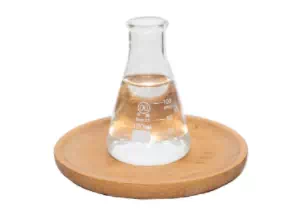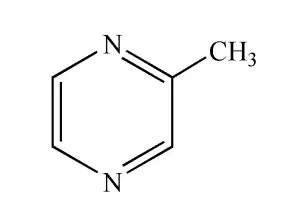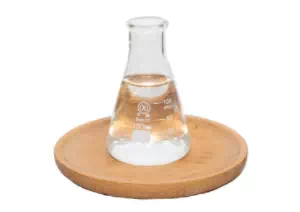2-Methylpyrazine Information
| Chemical Name | 2-Methylpyrazine |
| Other Name | 2-METHYL-1,4-DIAZINE |
| CAS | 109-08-0 |
| EINECS | 203-645-8 |
| Molecular Formula | C5H6N2 |
| Molecular Weight | 94.11 |
| Spice Type | Synthetic fragrance |
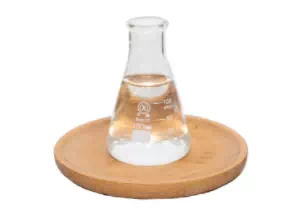
2-Methylpyrazine Uses
Ⅰ. Overview
2-Methylpyrazine is a nitrogen-containing heterocyclic compound with nutty, roasted and slightly caramel coffee aromas. It is an important flavor enhancer in food flavors and daily chemical flavors. It exists naturally in foods such as coffee, cocoa, and roasted nuts, but is mainly obtained industrially through chemical synthesis. As a representative of pyrazine compounds, 2-methylpyrazine is known for its low threshold and high aroma efficacy. A trace amount of addition can significantly enhance the layering and authenticity of the aroma.
Ⅱ. Application areas
Food flavors and seasonings
Baked and nut flavors:
Used in bread, biscuits, chocolate, n
ut products, etc., to simulate natural roasted aroma and enhance the aroma of caramelization reaction (Maillard reaction). Commonly found in coffee and cocoa flavor formulas, it gives a deep roasted feel.
Meat flavor enhancer:
Works with sulfides (such as furanthiol) to create the "smoky aroma" and "juicy feeling" of meat products such as barbecue and ham.
Dairy products and beverages:
Provide fermented cream aroma in cheese and butter flavors; used to enhance complex sweet aroma in cola and energy drinks.
Daily chemical flavors and personal care
Fragrance modifiers:
Add a small amount to the base notes of perfume to enhance the warm smoky feeling of tobacco, leather or wood (such as men's cologne).
Functional products:
Used in toothpaste and mouthwash to cover the sharpness of mint and balance the sweetness;
Create "natural food-based" aromas in soaps and shampoos (such as caramel and coffee themes).
Industrial and functional materials
Tobacco flavoring: used in cigarette formulations to improve the aroma of tobacco after burning and reduce irritation.
Pet food attractants: Improve the palatability of pet food by simulating the aroma of meat baking.
III. Unique advantages and technical requirements
High efficiency and economy
The aroma intensity is high, and the addition amount is usually ppm (parts per million), which significantly reduces the formulation cost.
Stability and compatibility
Resistant to high temperatures, acids and alkalis, suitable for baked food processing, high-temperature sterilization and other processes;
Compatible with sugars, amino acids and other ingredients, widely used in compound seasoning systems.
Dosage must be strictly controlled, excessive use may produce "burnt bitterness" and affect sensory experience.
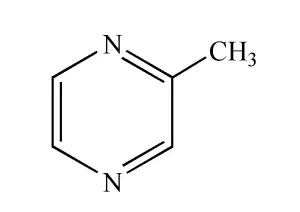
2-Methylpyrazine Properties
| Melting point | -29 °C |
| Boiling point | 135 °C/761 mmHg |
| Density | 1.03 g/mL at 25 °C |
| FEMA | 3309 | 2-METHYLPYRAZINE |
| Storage | 2-8°C |
| Fragrance | nutty |
| Water solubility | Fully miscible in water. |
| LogP | 0.18 |
Service
* Prompt reply and 24 hours online, professional team to provide best price and high quality product.
* Sample testing support.
* Every batch of products will be tested to ensureits quality.
*The packing also can be according the customers` requirment.
*Any inquiries will be replied within 24 hours.
*we provide Commerical Invoice, Packing List, Bill of loading, COA , Health certificate and Origin certificate. If your markets have any special requirements, let us know.

